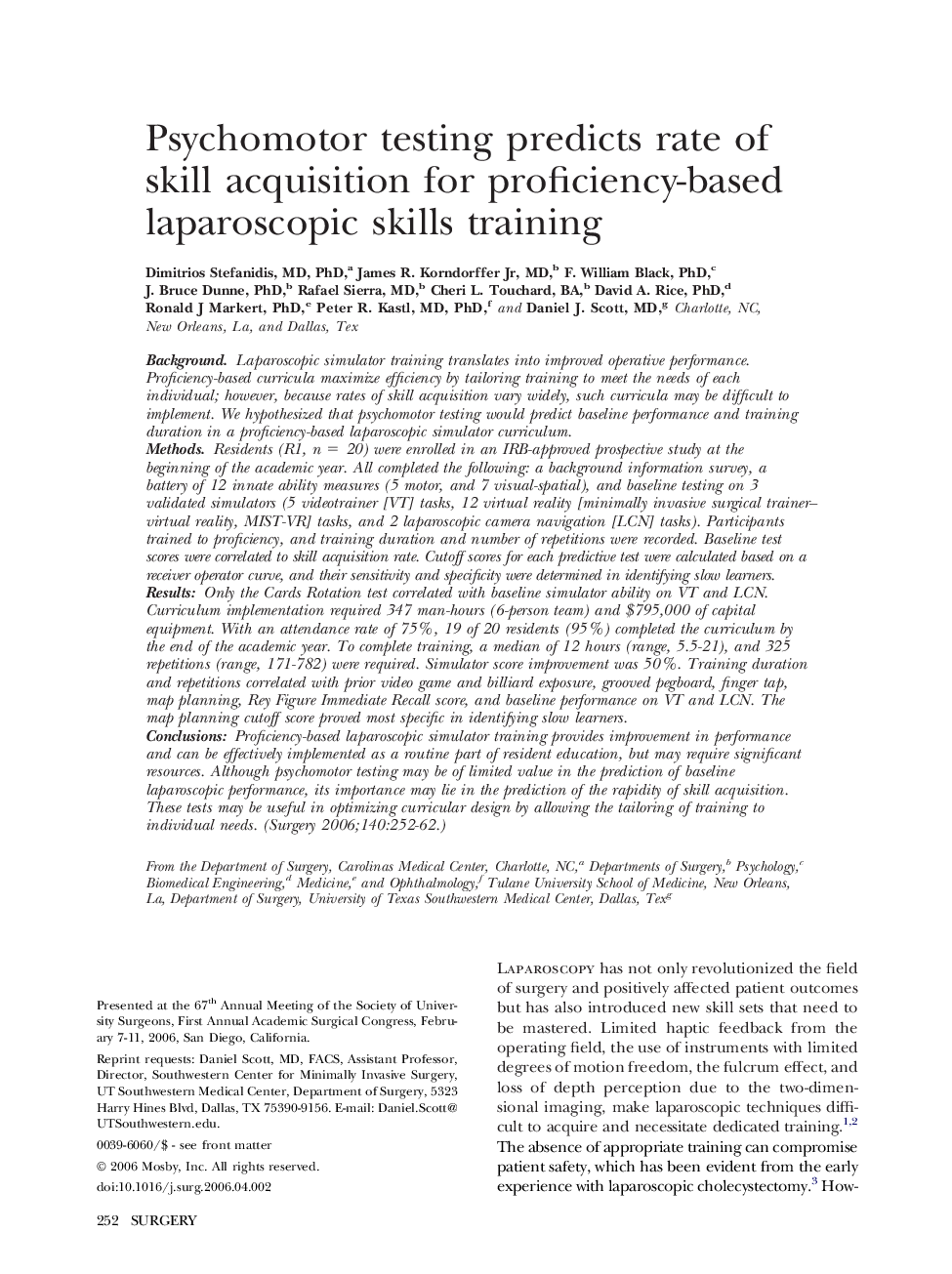| Article ID | Journal | Published Year | Pages | File Type |
|---|---|---|---|---|
| 4310010 | Surgery | 2006 | 11 Pages |
BackgroundLaparoscopic simulator training translates into improved operative performance. Proficiency-based curricula maximize efficiency by tailoring training to meet the needs of each individual; however, because rates of skill acquisition vary widely, such curricula may be difficult to implement. We hypothesized that psychomotor testing would predict baseline performance and training duration in a proficiency-based laparoscopic simulator curriculum.MethodsResidents (R1, n = 20) were enrolled in an IRB-approved prospective study at the beginning of the academic year. All completed the following: a background information survey, a battery of 12 innate ability measures (5 motor, and 7 visual-spatial), and baseline testing on 3 validated simulators (5 videotrainer [VT] tasks, 12 virtual reality [minimally invasive surgical trainer–virtual reality, MIST-VR] tasks, and 2 laparoscopic camera navigation [LCN] tasks). Participants trained to proficiency, and training duration and number of repetitions were recorded. Baseline test scores were correlated to skill acquisition rate. Cutoff scores for each predictive test were calculated based on a receiver operator curve, and their sensitivity and specificity were determined in identifying slow learners.ResultsOnly the Cards Rotation test correlated with baseline simulator ability on VT and LCN. Curriculum implementation required 347 man-hours (6-person team) and $795,000 of capital equipment. With an attendance rate of 75%, 19 of 20 residents (95%) completed the curriculum by the end of the academic year. To complete training, a median of 12 hours (range, 5.5-21), and 325 repetitions (range, 171-782) were required. Simulator score improvement was 50%. Training duration and repetitions correlated with prior video game and billiard exposure, grooved pegboard, finger tap, map planning, Rey Figure Immediate Recall score, and baseline performance on VT and LCN. The map planning cutoff score proved most specific in identifying slow learners.ConclusionsProficiency-based laparoscopic simulator training provides improvement in performance and can be effectively implemented as a routine part of resident education, but may require significant resources. Although psychomotor testing may be of limited value in the prediction of baseline laparoscopic performance, its importance may lie in the prediction of the rapidity of skill acquisition. These tests may be useful in optimizing curricular design by allowing the tailoring of training to individual needs.
